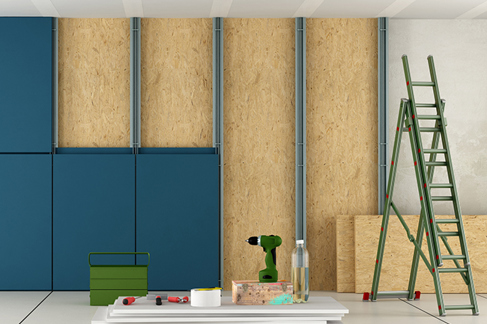
What should I expect during building work?
Project type
Safety and tidiness
A good builder should leave a site safe and tidy at the end of each working day. Safety is of paramount importance if you and your family are continuing to live in the property during work.
If you have concerns about this, speak to them and make it clear what you expect and agree what is reasonable. Of course, there will always be dust during any building project, so it's wise to wrap or cover anything that needs protecting before work starts.
If you're worried about safety issues on the site, you can report your concerns to the HSE.
Materials and workmanship
Materials used in building work must be of adequate quality and suitable for the circumstances in which they're being used. And they must be prepared, mixed and applied properly to perform the job that's expected of them, in a workmanlike manner. While building control isn't responsible for how good a project looks it does expect good workmanship and the right materials - Approved Document 7 in England and Wales provides guidance on this.
Unexpected work
Once your project is underway, it isn't uncommon to discover unexpected work that needs to be carried out. This will usually be additional work outside the agreed scope. A good builder should discuss any problems or additional work with you, to agree costs and the way forward, before taking any action. This is why your budget should always include contingency funds for these unplanned but necessary works.
What to do if things are starting to go wrong
If things are going wrong, talk to your contractor in the first instance. Try to keep things cordial and offer them the opportunity to remedy the problem. Make it clear what you want them to do and by when.
If you think your consumer rights have been breached you need to discuss this with the builder. If your project required building regulations approval, contact your Local Authority Registered Building Inspector for advice.
Your builder may well offer to remedy the problem which will hopefully be acceptable. In that case you could seek your money back plus damages to cover the cost of remedying the work through the courts - although it's always better to try to reach an agreement between yourselves.
Find out what your rights are if things have gone wrong.
Final costs and final payments
Once work is complete your contractor will present you with a final bill. It’s wise to go round the site with your builder at this stage to look at everything that has been done, make sure there is no work still to do, and make sure you are happy with finishes.
Make sure your builder has given you copies of any permissions, approvals, guarantees, warrantees and instructions for using your fittings and appliances, like boilers, smoke alarms or extraction systems.
And check you have your completion certificate from building control, if applicable. If you are happy with everything and have all your paperwork, pay your builder promptly and offer them a reference, which really makes a difference to small businesses.
After work has been completed
Make sure you file your certification and documentation safely together with any workmanship guarantees or appliance guarantees. You will need to provide these if there are any problems later and remedial work is required. For example, if there are any defects, leaks, cracks or unexpected movement.
Invariably you will have some snagging items that you discover after the work is finished. It's normal to discover minor faults such as settlement cracks, decorative issues or doors and cupboards that need adjustment. Just tell your builder and arrange for them to be rectified at a mutually convenient time. Normally this will be covered in your contract.
Serious faults or defects should also be raised with your builder: it’s always wise to raise these in writing, providing photographs if possible.


